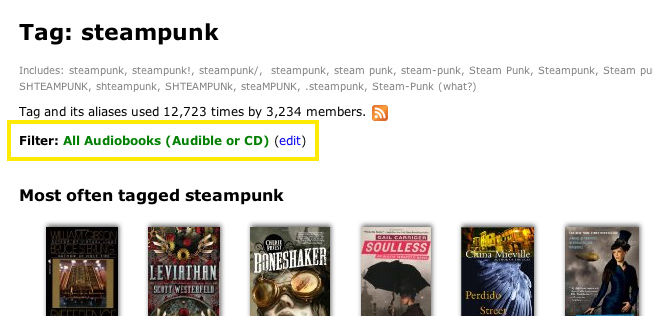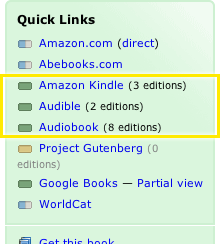This month’s State of the Thing, LibraryThing’s monthly newsletter of features, author interviews and various forms of bookish delight, is on its way to your inbox. You can also read it online.
 For our author interviews this month, I talked to Matthew Pearl about his new book The Technologists, published this week by Random House. The novel focuses on the early years of the Massachusetts Institute of Technology, as students in its first graduating class face down a mysterious force bent on destroying their school and their city.
For our author interviews this month, I talked to Matthew Pearl about his new book The Technologists, published this week by Random House. The novel focuses on the early years of the Massachusetts Institute of Technology, as students in its first graduating class face down a mysterious force bent on destroying their school and their city.
Which part of The Technologists came to you first?
The first scene I envisioned was one that appears early in the novel, when a group of the original MIT students are bullied by a Harvard crew team as both groups row the Charles River. It’s still an important scene for me when I think about the book and especially the main character. The early MIT students were ultimate underdogs and this moment captures that, plus introduces the Boston backdrop.
Your previous books have put major literary characters at the center of the action; what made you decide to use college students this time around?
For many if not most people, college is a formative and unique experience in their lives. Different from any time before or after. “The best four years of your life”? Maybe, though probably not. But certainly among the most interesting. I really loved releasing my characters into that context.
Did you find it easier to write using fictional protagonists rather than historical characters?
The Technologists has a mix of fictional and historical characters. The central protagonist, Marcus Mansfield, is fictional, though based on my research into many of the original MIT students. It’s hard to say what ends up making writing “easier,” at least for me, because the long process of writing the novel inevitably complicates every task. Still, I can’t deny there’s a liberating quality when working with fictional characters after spending time on historical figures with more established profiles!
Read the rest of our interview with Matthew Pearl.
 I also talked to Leah Price, the editor of Unpacking My Library: Writers and Their Books, published late last year by Yale University Press. The book includes interviews with thirteen contemporary writers about their libraries, plus some wonderful pictures of their books.
I also talked to Leah Price, the editor of Unpacking My Library: Writers and Their Books, published late last year by Yale University Press. The book includes interviews with thirteen contemporary writers about their libraries, plus some wonderful pictures of their books.
Were there any responses to the interview questions that surprised you?
I was surprised—even touched—by how intimate some of the answers were. Questions about a writer’s relation to his books somehow yielded answers about a writer’s relation to his father, his lovers, even his exes. Junot Diaz told me that “When I was still with my ex, I drove back and forth between New York and Cambridge seven to eight times a month, and that’s how I got into audiobooks. I liked reading to my ex. Never read to anyone else. Never had anyone read to me, really.” Just as poignantly, Lev Grossman pointed to a bookshelf custom-built for the apartment he used to share with his ex-wife. “Funny how libraries retain ghostly impressions of the past,” he reflected: “those bookshelves retain the dimensions of those old rooms, not of the rooms they’re currently in, so they’re slightly ill-fitting.” Both writers think of books as something shared with other people, or tainted by memories of the people with whom they were once shared – which helps makes sense, in a way, of the success of LibraryThing in building social relationships via books and circulating books by forging virtual networks.
I also asked Leah to tell us about her personal library and how she organizes her own books (and she sent along a picture of her shelves, too):
I alphabetize my books by author, because I’m the kind of obsessive-compulsive who also alphabetizes the spices and color-codes the socks. My books are divided between home and office, but paradoxically the ones that are most on display, in my office on campus, are the least revealing, because when I’m at work I rarely have time to read anything longer than an e-mail or a memo, and so that’s where I keep the books that I don’t have any intention of rereading.
At home, we segregate the cookbooks (though, inconsistently, I have a beautiful 1880s edition of Mrs Beeton’s Household Manual filed under B, because I don’t have any intention of cooking suet pudding), and there are a few straggler sections dating back to the days before my library started to flirt with my partner’s. When we moved in together he started pulling books out of boxes and plopping them down on the shelves without regard to which were mine and which were his. I panicked, because I had assumed that we wouldn’t interfile our books, just as blithely as he had assumed that we would. A family therapist would probably add interfiling to the list of things to negotiate in advance: blended families are nothing to merged libraries. Now that our books are promiscuously mingled, we’re getting married next month, but that feels like a formality compared to the day when we steeled ourselves to put duplicates out on the curb. Once you’ve ditched somebody’s copy of Middlemarch, you might as well have signed up for a covenant marriage.
Read the rest of our interview with Leah Price.
Catch up on previous State of the Thing newsletters.
If you don’t get State of the Thing, you can add it in your email preferences. You also have to have an email address listed.













 Publishers do things country-by-country. This month we have publishers who can send books to the US, Canada, the UK, Israel, and a whole bunch more. Make sure to check the flags by each book to see if it can be sent to your country.
Publishers do things country-by-country. This month we have publishers who can send books to the US, Canada, the UK, Israel, and a whole bunch more. Make sure to check the flags by each book to see if it can be sent to your country.











































































































